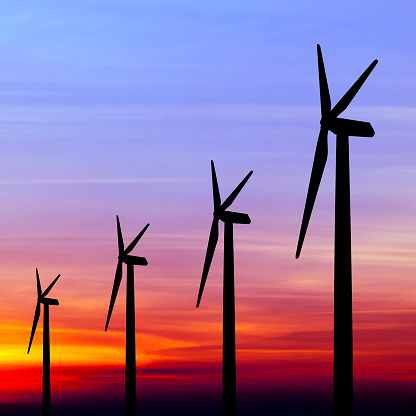 With a two-thirds reduction in the cost of wind energy over the last six years, the production tax credit (PTC) is on track to achieve its goal of a vibrant, self-sustaining wind industry, according to a white paper released by the American Wind Energy Association (AWEA).
With a two-thirds reduction in the cost of wind energy over the last six years, the production tax credit (PTC) is on track to achieve its goal of a vibrant, self-sustaining wind industry, according to a white paper released by the American Wind Energy Association (AWEA).
The white paper, entitled ‘Wind Energy and the PTC: Sustaining an American Success Story,’ details the dramatic impact the tax incentive has had on the U.S. wind industry.
‘The cost of wind energy fell by more than half over the last five years, bringing the wind industry a significant distance down the road to achieving cost parity,’ reads the white paper. ‘The key now is staying on that cost-reduction trajectory – by maintaining the policy stability that made it possible – so that cost parity can be reached.’
According to AWEA, the PTC and investment tax credit have enabled private-sector investments in the American workforce, domestic manufacturing, and research and development that have significantly reduced the cost of wind energy. Recent technological advances include advanced materials for longer blades and taller towers that reach stronger winds at higher altitudes and allow all regions to deploy utility-scale wind energy.
The PTC has also enabled private-sector investments in a diverse supply chain with more than 500 wind manufacturing facilities in 43 states, driving economies of scale and reducing the cost of transporting large turbine components.
The study was released to coincide with the returning Congress, which is expected to tackle a tax policy extenders bill now pending in the Senate.
On July 21, the PTC was included in a tax extenders bill that U.S. Senate Finance Committee passed on a 23-3 vote. It would extend for two more years the $0.023/kWh tax credit for projects that start construction by the end of 2016. The bill is now pending in the full Senate.
The white paper also explains how the investments in domestic manufacturing and the American workforce – and the cost reductions they have achieved – can be abruptly lost if the credit is not extended.Â
Last week, for example, wind industry supplier Dokka Fasteners shut down a factory in Michigan due to uncertainty over the federal tax credit. As Dokka explained in its Sept. 1 press release, ‘The landscape for wind energy is volatile based on a lack of a committed U.S. renewable energy policy, gridlock of government in Washington and the uncertainty of the [PTC].’
The white paper builds on work by national laboratories documenting how stably priced wind energy protects consumers against uncertain and rising prices for other fuels.
‘The renewable energy PTC has been a tremendous success in driving technology improvements and cost reductions, but we need to finish the job,’ explains Tom Kiernan, AWEA's CEO. ‘You don't push a boulder 90 percent of the way up a hill only to stop a few feet short and let it roll back down.’



